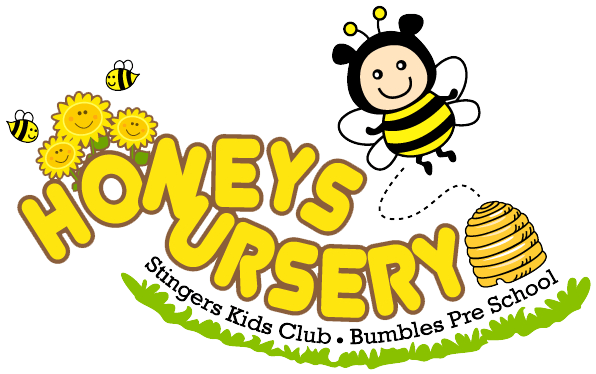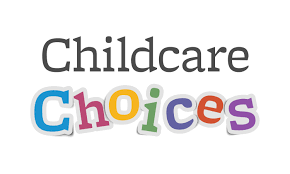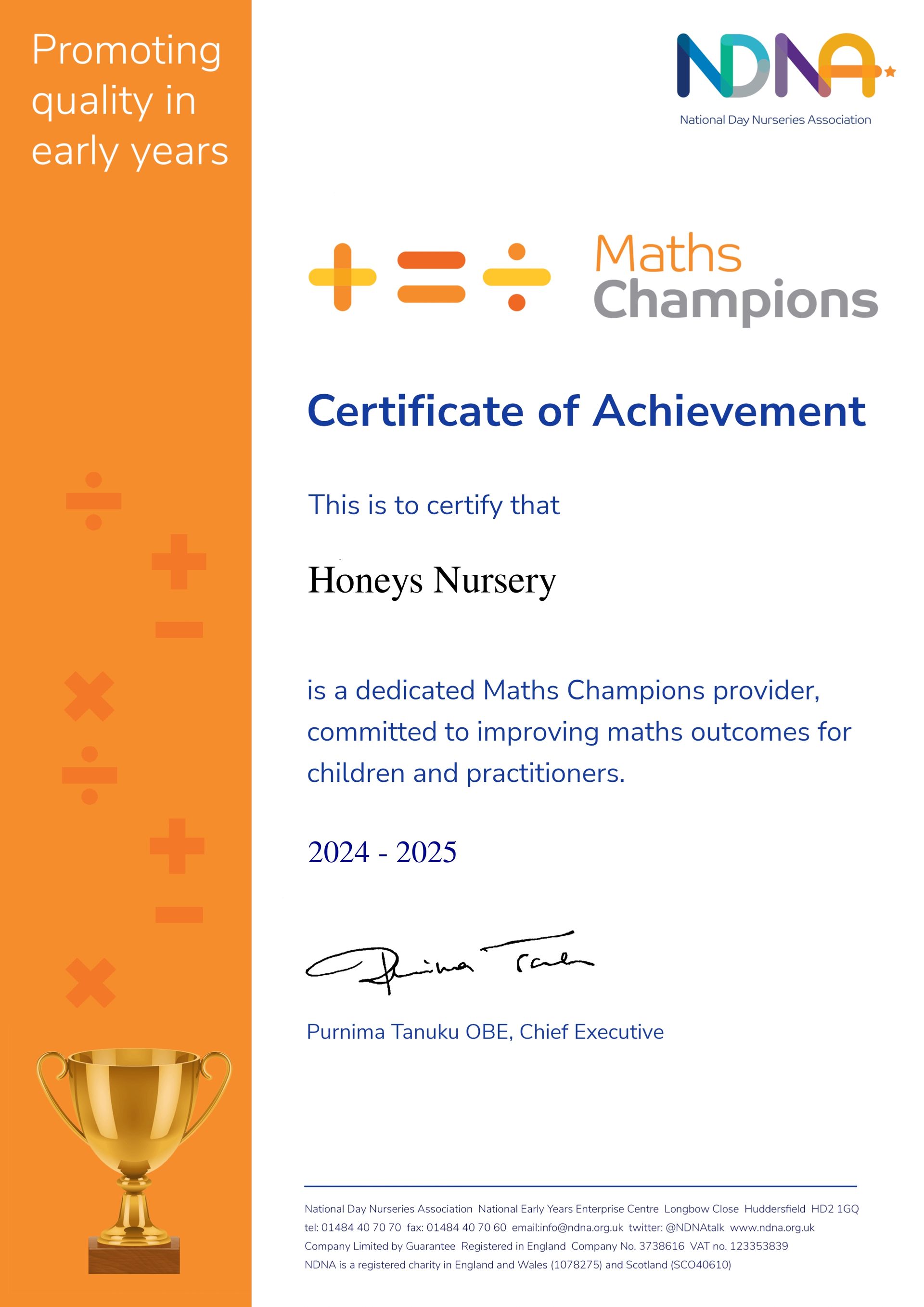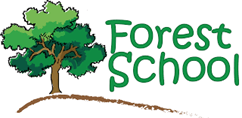Honey’s Nursery & Our Community
At Honey’s Nursery, we believe in kindness in action and that childhood is not just shaped within the walls of our nursery, but also through the relationships, places, and people around us. We see ourselves as part of the wider community, and we are committed to nurturing a sense of care, connection, and responsibility in our children — not just to each other, but to their surroundings too.
Why we give back
- We want our children to grow up with a sense of belonging — to their neighbourhood, their park, and their community.
- Through hands-on experiences, they learn values like responsibility, empathy, and respect for nature and others.
- Getting involved in community actions enriches their learning — they see that small actions can make a real difference.
- It also connects our staff, children, and families more closely to local life, and helps strengthen the ties that bind us together.
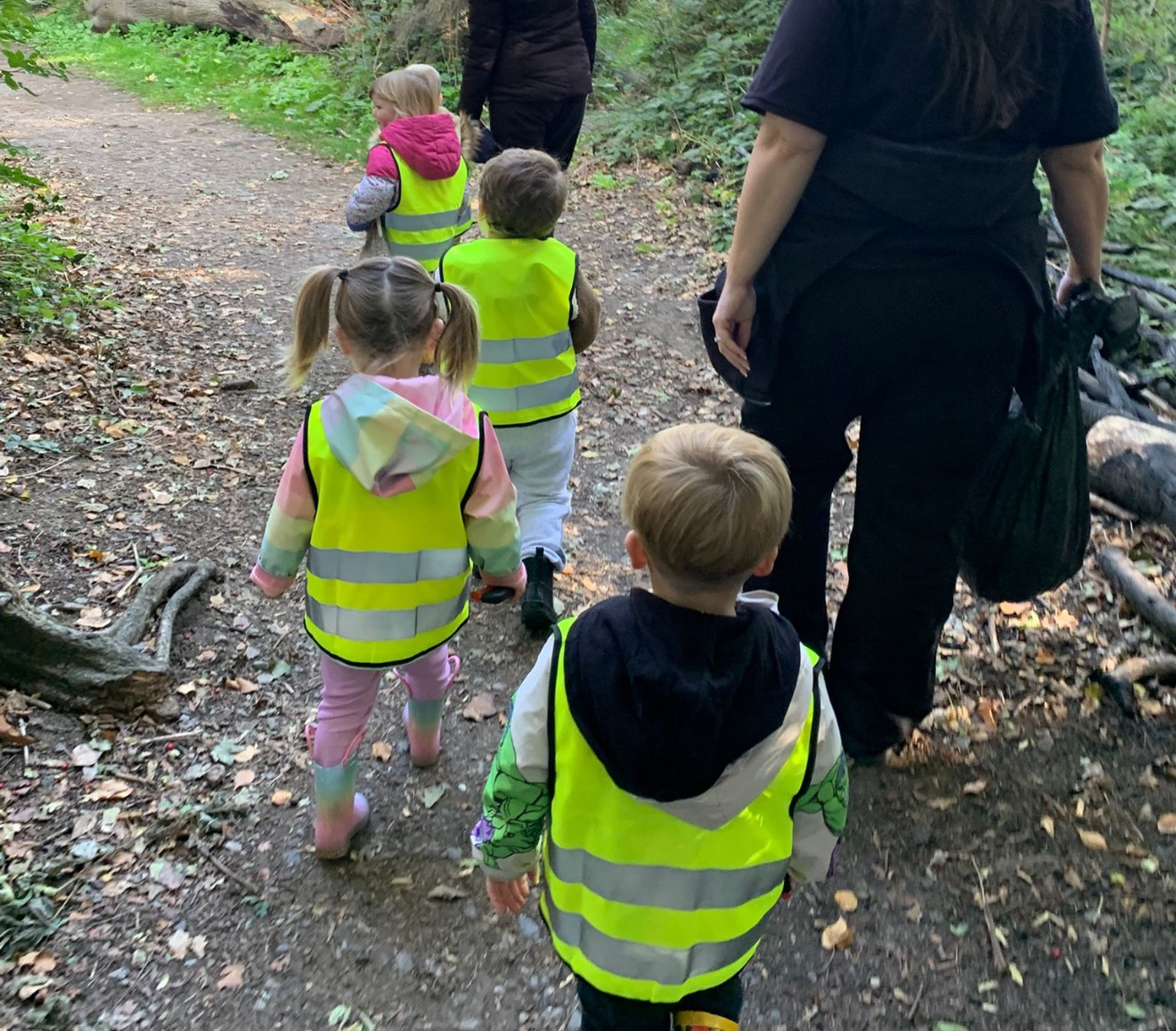
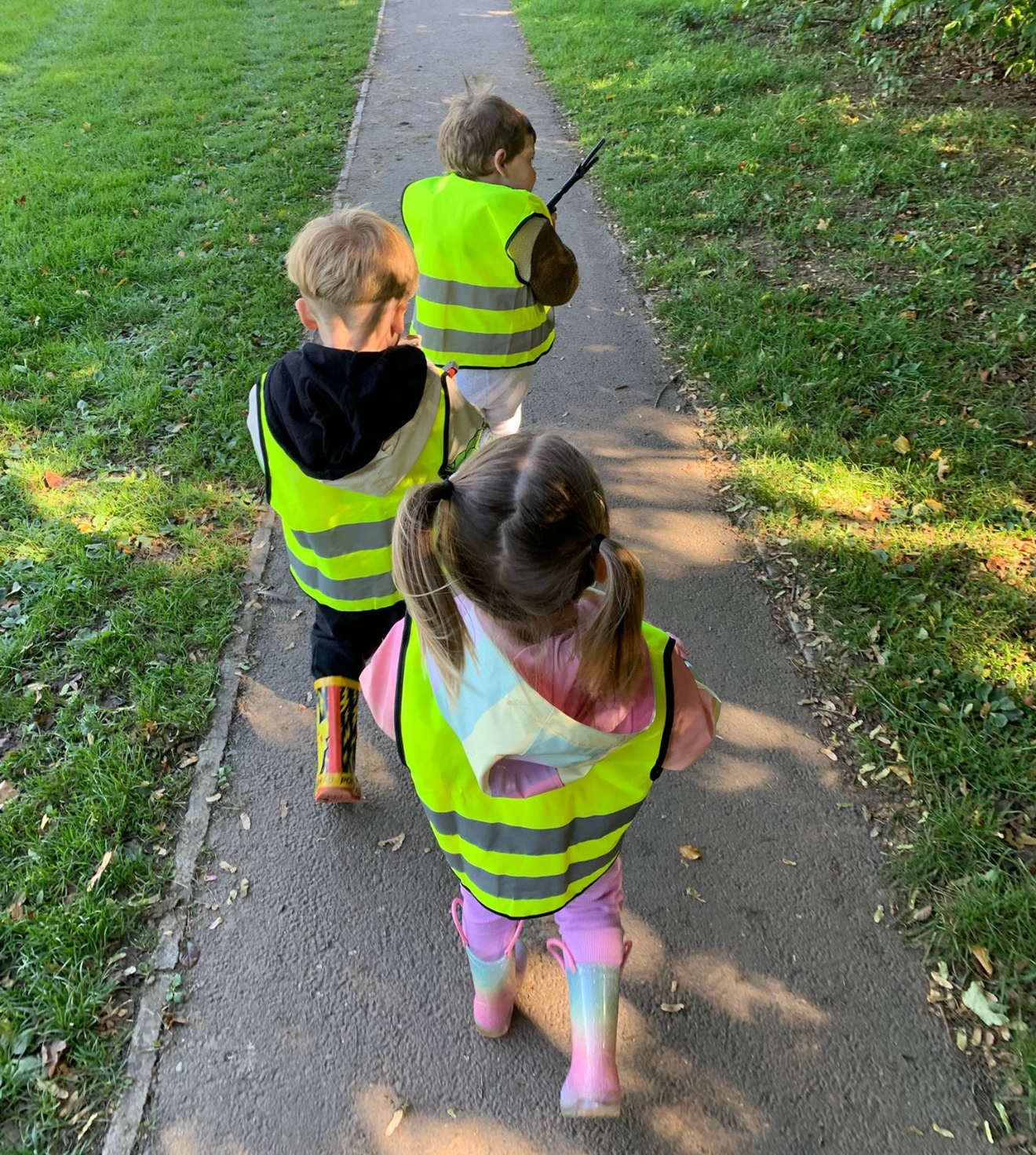
Litter-Picking in the Park
One of our community projects is to organise regular litter-picking sessions in the local park. Here’s how we approach it:
- Scheduled clean-ups: We arrange regular litter-picking days.
- Safe, age-appropriate participation: Children will have child-friendly litter pickers, high viz protection and appropriate supervision. We make sure tasks are suitable for each age group.
- Learning together: As we pick up litter, we’ll talk about why litter matters — how waste can harm wildlife, pollute soil or water, and diminish the natural beauty of our shared spaces.
- Reflecting on impact: After each session, we’ll review how much rubbish has been collected, celebrate successes, and think about what more we can do to reduce litter in everyday life.
- Community collaboration: We hope to reach out to local groups, the parks department, and environmental organisations to support, promote, and sustain the effort.
- Sharing our story: Through photos, short write-ups, and the nursery newsletter/website, we’ll share snapshots of our clean-ups and encourage others in the community to join or replicate.
By doing this, we aim not only to keep our park clean but also to foster a culture of care and stewardship among our little ones.
What this means for children and families
Children will see first hand that they are capable of positive change — that their efforts, no matter how small, matter.
They’ll develop physical skills (bending, grasping, coordination) as well as social skills through working together.
The wider community benefits from cleaner, safer green spaces.
Over time, we hope the children carry these habits and attitudes forward — caring for their environment wherever they go.
Visiting Sheds
Who they are:
- Formally known as Men in Sheds (often run through organisations like Age UK) provide safe, communal spaces for men and women to come together, share skills, restore projects, chat over a cup of tea, and reduce social isolation.
What we do:
- We bring a selection of baked goodies or thank-you cakes as a small token of appreciation for their work, time, and hospitality.
- Our children (as appropriate by age) and staff will visit, helping deliver the cakes and perhaps engaging in light conversation or observing their activities.
- We take the opportunity to talk with some of the Shed members about their projects, share stories about the nursery, and learn from them.
- If possible, we might offer a small gesture in return — e.g. helping with a simple project, donating materials, or offering to help in a future joint activity.
Why this matters:
- It strengthens intergenerational connections.
- It shows our children how respect and gratitude are lived out.
- It fosters social cohesion, mutual learning, and community spirit.
Visiting Biggin Hill Community Care Group
We are also from October visiting our local community care group (a day care centre, for the elderly)
What we’ll bring & do:
- cakes or treats made with care.
- artwork from the children (e.g. drawings, )
- A brief friendly visit: greeting, chatting, perhaps sharing a short song or story book or simply spending time engaging.
What we hope to achieve:
- Show appreciation for care staff who often work behind the scenes.
- Bring warmth and delight to the group members, letting them know they are valued.
- Allow children to experience empathy, kindness, and connection beyond their immediate circle.
